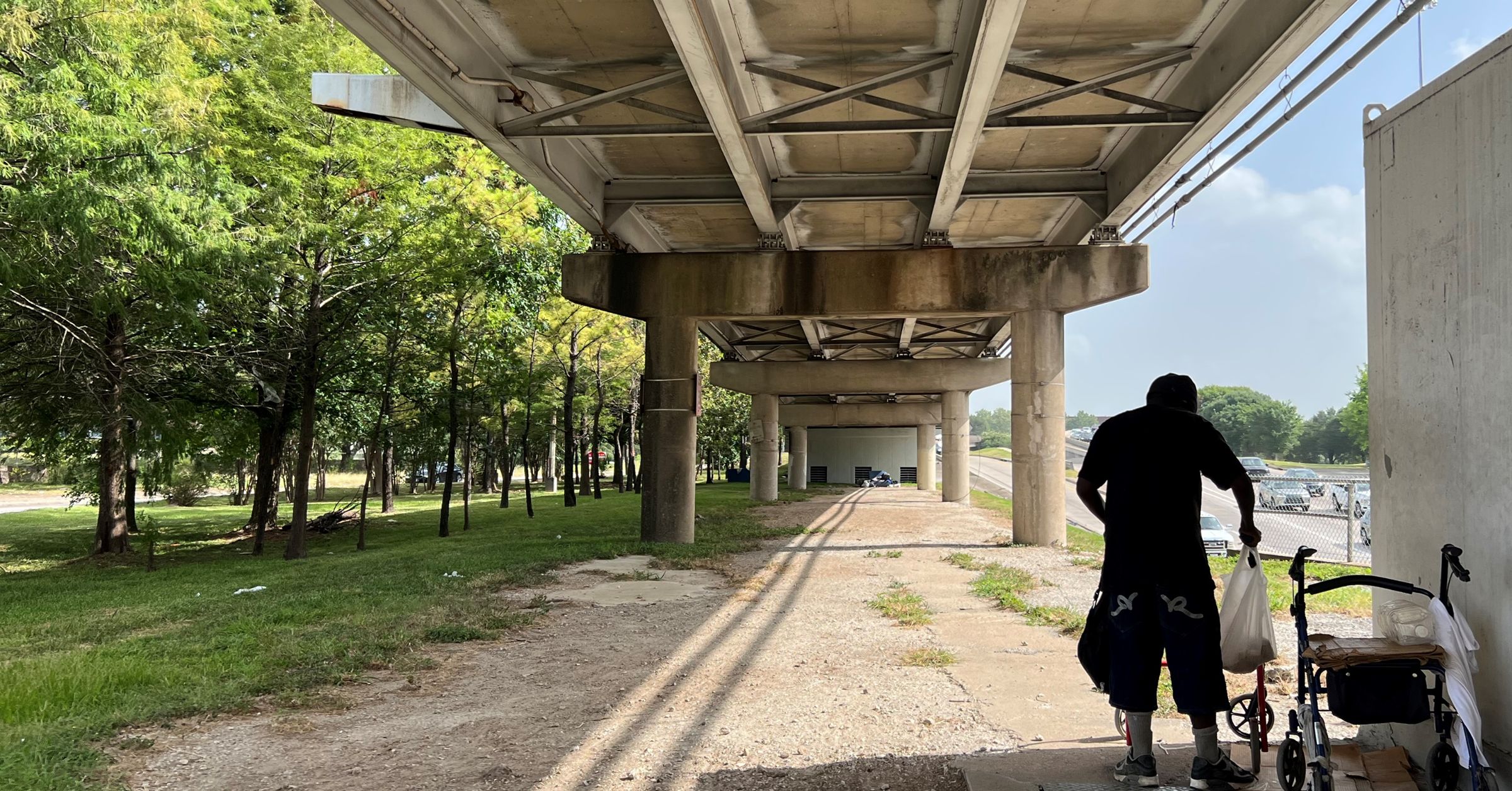By: Jonathan Danforth
I want to thank Ben King for the opportunity to present about encampment response strategies to his class at The University of Houston, College of Medicine. I always enjoy diving back into the work on the ground to end homelessness. Talking with his students sparked reflections of how we laid the groundwork for the encampment to housing efforts in Houston and how the nation is now reckoning with this same question following Johnson v. Grants Pass.
In 2019, my team analyzed a year’s worth of data from the largest homeless encampment in Houston and found a higher occurrence of every barrier, except HIV, than the average individual receiving homeless services in the region that year. We saw that these encampment residents experienced homelessness for longer, received more services, and had two to three times the number of failed housing referrals than average. This data confirmed our belief that there was a higher level of vulnerability in the encampment, and justified having our street outreach teams double down on progressive engagement to try to get these folks out of the encampment and into housing.
Looking back, I’ve asked myself – why did we need a year’s worth of data and analysis to be able to acknowledge the depth of the need that was, quite literally, right outside our front door? The truth is that we didn’t. There were plenty of red flags from the neighborhood, the city, and the encampment residents themselves announcing that the way people were living there was not okay. In fact, the reason we signed on to engage with this encampment for a straight year was because the city had pushed us to figure out a targeted response. In the absence of options, deploying street outreach staff to visit the encampment on a weekly basis was just what we had to offer.
As it turned out, there were actually several outreach teams doing the same thing. We encountered law enforcement agencies, faith-based organizations, and other social service providers. We were all following the same lead – acknowledging that something seemed off about life under this bridge. Yet, even with all these staff hours poured in, life more or less continued on as usual for campers. At least until we had the data…
Once we shared the information with the city and the Continuum of Care, they now had a blueprint for what it would take to change the situation. They calculated the cost of case management and rental subsidy for a year, identified the number of individuals who they would need to identify long-term options like permanent supportive housing for, activated private funding that had been waiting for a noble cause, and moved over 100 individuals into apartments on 12-month leases. This set the stage for us to design the Houston Encampment Response Strategy, which was released in 2021, to codify the process and continue it at other sites.
Today, encampments remain a challenging topic. We know that life outdoors is risky for a lot of people, and we’re seeing responses that are less compassionate and less effective emerge rapidly throughout the country. The National Homelessness Law Center Housing Not Handcuffs report states that cities have doubled the number of laws prohibiting loitering, loafing, and vagrancy since 2006 and that somewhere between 50% and 80% of cities from the study have laws that restrict life-sustaining activities. The SCOTUS ruling in Johnson v. Grants Pass gives law enforcement the precedent to cite or arrest individuals sleeping outside under any of these laws, painting a grim reality for those who are living outside.
Part of why I’m writing this is because I do believe there is hope for better outcomes for both communities and individuals on the street. We have to remember the work that was born out of Martin v. Boise in 2018, which required the availability of adequate housing alternatives to enforce these laws. This means that we have spent six years pioneering ways to move people off the streets and into permanent housing – and we have seen it work! In 2022, Houston saw 90% of individuals offered immediate and permanent housing say yes and move out of encampments and into apartments. Today, this kind of initiative is being replicated nationwide.
The truth is, we’ve already laid the groundwork to handle the fallout from Johnson v. Grants Pass. We now know that communities can save money, transform neighborhoods, and bolster homeless response systems when we take a rehousing approach for those living in encampments. Today more than ever, it is clear that the well-being of the most vulnerable among us lies in the hands of political will. We need leaders to choose what is humane, which, as often is the case, also happens to be what is effective.
Contact me for more articles, resources, and tools if you’re trying to start this conversation locally. Godspeed!
